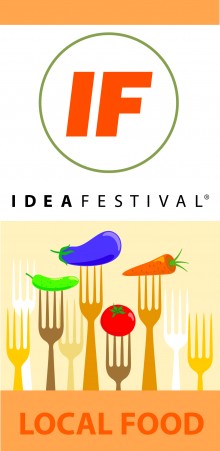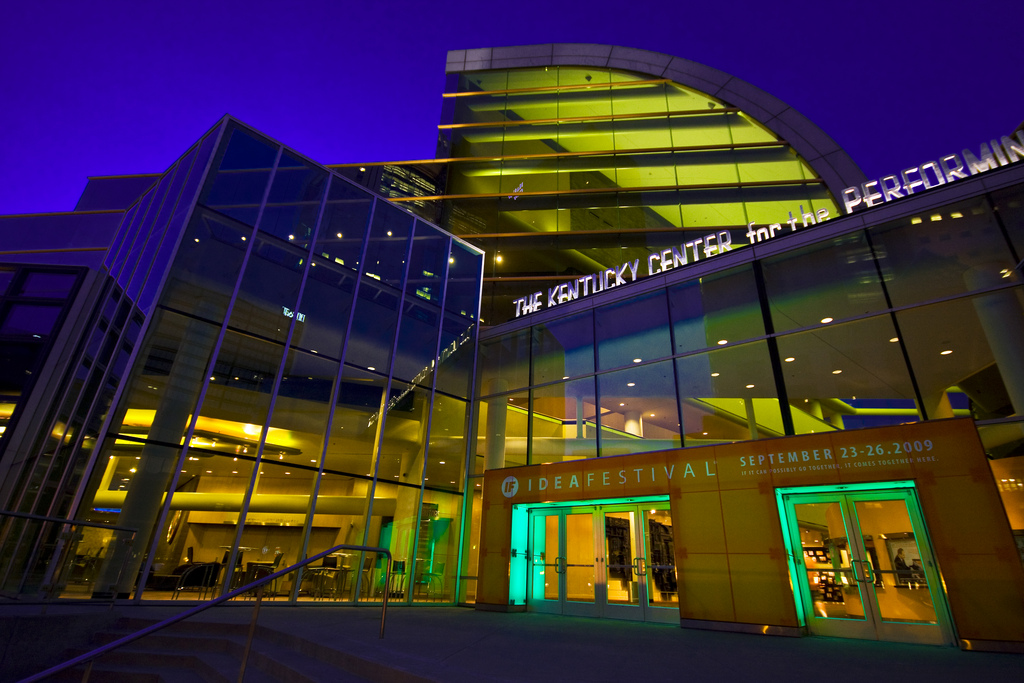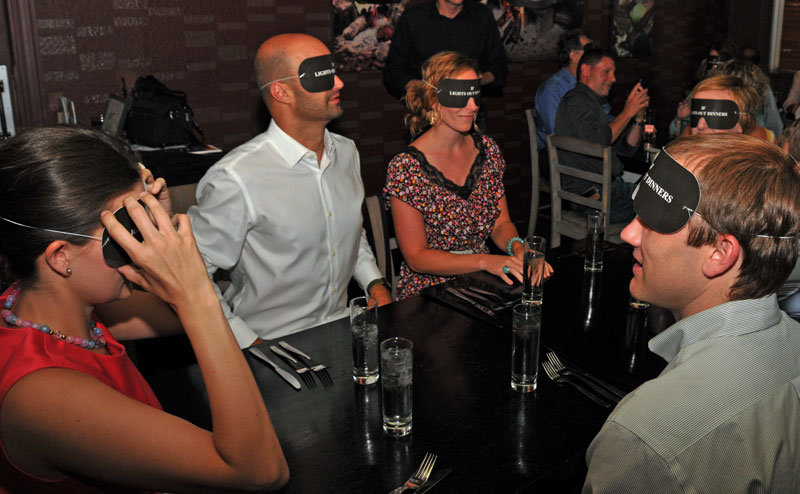OK, Louisville, we’ve relied on the “professionals” long enough to convert all that local food talk into action. It’s time that more of us got down to learning how to tap into what’s already a well-established network of farmers and retailers who are bring the food to market. It’s our turn to buy and cook more of it.
Don’t know how to get started? Then visit IdeaFestival’s Local Food: The Power to Change event on Monday, Sept. 23, from 8:15 a.m. to 4:15 p.m. at the Mellwood Arts Center.
The day provides about a dozen seminars and discussion panels centered on what we all can do to further influence better farming, better foods and better lifestyles for ourselves.
Our local executives, not the least of which is Metro Louisville Mayor Greg Fisher, are behind it, and our culinary community has backed it for 20 years now.
The question now becomes: What’s going on in your home to help this cause?
Here’s how you start learning what you can do or do more of: Attend the Local Food: The Power to Change seminars. Tickets are $35 each. Click here to get yours.
Here’s the schedule for the day, which includes lunch and snacks—just like school!
* 8:15 to 8:50 a.m. – Registration and Kentucky Proud breakfast
* 8:50 to 9 a.m. – Welcome and introductions
* 9 to 9:30 a.m. – Louisville, local food and community
Sarah Fritschner, Louisville Farm to Table
Local food encompasses an amazingly broad set of issues, from farming to distribution, from retail sales to hunger and access. Sarah Fritschner will connect the dots using her 30-year career working in local food to describe the tangled web that is local food.
* 9:30 to 10 a.m. – Louisville’s growing community
Theresa Zawacki, Metro Louisville’s commitment
Mason Roberts, Louisville Grows
Lauren Goldberg, Refugee Agricultural Partnership Program
Andrea Wright, JCPS garden project
Urban agriculture comes in many forms. Policy makers are working to make it easier to develop gardens in the city while nonprofits are taking on projects to create space for urban food production for individuals and entrepreneurs. JCPS is using garden spaces for a range of educational moments and extracurricular opportunities. And the next generation of urban growing is on the horizon with hydroponics, vertical growing and aquaponics promising to create jobs and opportunities for food production in the city.
* 10 to 10:15: LousivilleIsFood.org Debut
Melissa Richards-Person
The 2013 Bingham Fellows have been working hard to develop a smart food culture in Louisville, and have partnered with Winston Industries and others on an exciting new resource to support what’s happening in the community. Learn how LouisvilleIsFood.org will provide information about existing community food system assets, promote greater connections and coordination among organizations working in various aspects of the system, educate the public, and promote the good work happening in Louisville around local food.
* 10:15 to 10:45 a.m: Learning about local
Carol Gunderson, Food Literacy Project
Mary Kay Korfage, Food is Elementary
Alicia Arnett, JCPS Fruit and Vegetable program
Stephen Bartlett, Sustainable Agriculture of Louisville
Our connection to food begins in our childhood. How are educators working to ensure that this generation of children understands where food comes from, how it gets to the store, what they should eat, and how they can help prepare it?
* 10:45 to 11:15: That all may eat (well)
Karen Moskowitz, Fresh Stops
Sasha Belenky, Corner store initiative
Stan Siegwald, Dare to Care
We are not all fortunate enough to live near a grocery store or farmers’ market, to be able to shop for groceries as often as we like, or to buy as many fresh foods as we should be eating. Hunger is a reality for many people in this community, and financial resources to buy food, particularly local food, are not a given for all. But healthy food and even local food is finding its way into the community through a corner store initiative designed to incentivize convenience store owners to convert a portion of their floor space to fresh produce, an innovative model of neighborhood-based cooperative buying driven by community empowerment and food justice education, and food banks working to provide much-needed assistance to the hungry.
* 11:15 to 11:45: Direct farm impact
Sarah Fritschner, Louisville Farm to Table
Ben Abell, Community Farm Alliance, Abell Organics
Melissa Schreck, Gray Street Farmers Market
What does it mean to provide direct economic impact to farmers and why does it matter? Is it the same to buy a tomato from Florida as it is to buy a tomato at a Louisville farmers market? Kentucky ranks fifth in the nation for the number of family farms still in operation. As these farmers transition from growing tobacco to growing other crops, particularly edible crops, we are faced with the challenge of finding ways to make growing food just as profitable as growing tobacco. Learn about programs and policies trying to bring greater economic success to Kentucky’s farmers and how you can support this effort.
* 11:45 to 12:45 – Kentucky Proud box lunch and networking
* 12:45 to 1:15 – Where can I buy local food?
Ron Smith, Root Cellar
James Neumann, ValuMarket
Lynn Greene, Grasshoppers
Explore the challenge of sourcing local food for retail sales with conversations about seasonality, consumer education, volume, distribution and market development with three retailers working with local food under three different sales models.
* 1:15 to 1:45 – But what if I want to go out to eat?
Annie Pettry, Decca
Bruce Ucan, Mayan Café
Gabe Sowder, Taco Punk
Coby Ming, Harvest
It’s not any easier for chefs to figure out how to use local food. Why do chefs choose local food when they could just order it from the distributor? Where does the local food on restaurant menus come from? And what are chefs doing to support Kentucky farmers?
* 1:45-2:15 – Two feet, four feet, six feet
Maggie Keith, Fox Hollow Farm
John Mark Hack, Marksbury Meats
Thomas Webster, Kentucky State University
Chickens, cattle and bees: how does each affect the economic potential of the farmer, improve the land, and provide critical support to system of food production? What are the challenges in processing local animals?
* 2:15-2:30—Snack attack!
Chef-prepared, local ingredients
* 2:30-3:00 – The power of the penny—financing your food (business)
Carrie VanWinkle, Just Money
Bill Johnson, Farm Credit Services
So you’re finally ready to start making your granny’s famous marinara sauce for a commercial market. Or you’ve decided to leave corporate life to grow hydroponic microgreens in an urban warehouse. Or you want to diversify your farm to include a new crop—maybe berries? So how are you going to pay for that? Ask these experts to show you some options.
* 3:00-3:30 – There’s more to this puzzle…
Commissioner James Comer
Mayor Greg Fischer
The changing face of Kentucky’s farmers transitioning from tobacco to alternative crops and particularly food crops creates opportunities to build strong networks for communication, leadership and relationship building. Join Commissioner James Comer and Mayor Greg Fischer for a conversation highlighting their experiences working together to promote the local food economy.
* 3:30-4:15 – The future is out there
Agriculture, like all other industries, requires innovation to meet the changing needs of food consumers. Village Capital, the world’s largest accelerator for impact ventures, and VentureWell, a program of the National Collegiate Inventors and Innovators Alliance, have been hosting their agriculture and clean technology accelerator in Louisville since June. From over 100 applications, 15 ventures were selected for the accelerator program. Today, we will hear from Victoria Fram of Village Capital about why investors are excited to invest in these entrepreneurial endeavors, and from representatives of the agriculture teams competing in the incubator program about their potentially world-changing ventures.






















